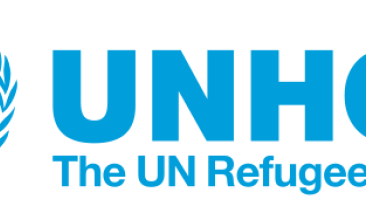Immigration, Refugees and Citizenship Canada (IRCC) shares the same goal as sponsors, that refugees settle well into their community and work towards self-sufficiency. IRCC is accountable to the Canadian public for evaluating the results of programs, policies, and initiatives across all immigration programs. What this means for sponsors is that IRCC must ensure that the support they provide to refugees meets identified minimum standards.
To make sure the Private Sponsorship of Refugees (PSR) program works effectively, IRCC monitors sponsorship groups after refugees arrive, through the Resettlement Services Assurance Team (RSAT).
Monitoring sponsorship groups
IRCC completes checks after refugees arrive in Canada to make sure:
- sponsored refugees are getting the support they should from their sponsors
- sponsoring groups are meeting the responsibilities listed on the sponsorship undertaking
- sponsorship agreement holders (SAH) are following the conditions of their agreement
RSAT conducts 3 forms of monitoring activities of sponsorship groups:
- Routine monitoring: randomly selecting sponsored refugees’ cases through the PSR program and the Blended Visa Office-Referred (BVOR) program to confirm that they are receiving the necessary support, and to address any potential issues that are identified.
- Reported cases: by following up on individual case reports from partners and the community regarding potential lack of support.
- Reactive Monitoring: by assessing groups with trends of reported concerns or more serious claims, to ensure that sponsors are meeting their sponsorship obligations
Routine monitoring
Within 4 to 6 months of arriving in Canada, IRCC will either call newcomers or send them an online survey. Interpretation is available for telephone interviews, and online surveys are available in various languages. IRCC asks them questions about their sponsorship and the kind of support they’re getting from their sponsors.
Through this routine monitoring activity, IRCC
- gets a more complete picture of how well the PSR program is working
- makes sure sponsored refugees are getting the support the program is designed to deliver
Following the outreach IRCC only contacts sponsorship groups if it identifies a potential problem during this monitoring process. A Case Review Process will be initiated to work together to resolve any potential concerns.
Reported cases
The RSAT receives information from a variety of internal partners as well as from the larger community, such as from social assistance workers, settlement agencies or sponsors, and newcomers themselves.
RSAT members encourage the sponsorship community to reach out to them if they are aware of any potential concerns. The team reviews all reported concerns that are referred to them.
If there is a potential concern about a case, then the Case Review Process will be initiated for the specific case that was reported to work with sponsors to resolve the potential concerns.
Some examples of issues that triggered case-specific follow-ups include:
- lack of, or no, financial support being provided
- lack of, or no, settlement support being provided (for example, health concerns not addressed, or lack of access to settlement services)
- interpersonal conflict between the sponsors and refugees
If IRCC decides to investigate a reported case, they follow these steps:
- Send the sponsorship group a letter asking for information about the support it’s given to the refugees.
- Send the sponsorship group the results of the assessment.
- Declare a sponsorship breakdown if the sponsorship group can’t or won’t fix the problems in the time given.
- Send a sponsorship default letter if the sponsorship group can’t or won’t show that it fixed the problems identified, and explain why it shouldn’t be placed in default.
Reactive monitoring
This is when IRCC conducts an in-depth review of a particular sponsor or group to look into the potential issues with their caseload. This type of monitoring is conducted if
- IRCC has to follow up on multiple reported cases from the same group
- more serious problems are reported to IRCC
Serious problems that would trigger reactive monitoring include:
- the sponsorship group isn’t replying to time-sensitive messages from IRCC (or it isn’t replying on time)
- IRCC gets information about refugees paying for their sponsorship
- IRCC gets multiple reported cases or finds issues consistently during routine monitoring for the same sponsorship group
- IRCC has to put the sponsorship agreement holder into a check-in period or move it into “not in good standing”
To complete reactive monitoring, IRCC
- chooses a sample of the sponsorship group’s caseload (of the refugees who have already arrived in Canada)
- interviews the refugees from the chosen cases (if needed)
- analyzes the information on file for the sponsorship and the information got during the interviews
- decides if there is a potential concern with the sponsorship support
- works with the sponsorship group to resolve any concerns
You can contact the RSAT team by emailing: IRCC.PSRCaseReview-RevuedecasPSR.IRCC@cic.gc.ca

